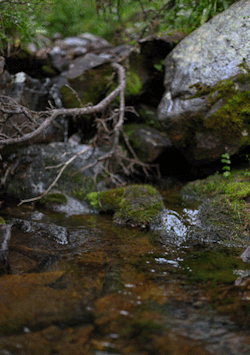
Training the mind well is a useful activity. You can see this even in draft animals, like elephants, oxen, and water buffaloes. Before we can put them to work, we have to train them. Only when they’re well trained can we use their strength and put it to different purposes. All of you know this.
A mind well trained is of many times greater value. Look at the Buddha and his noble disciples. They changed their status from being run-of-the-mill people to being noble ones, respected by people all over. And they’ve benefited us in more wide-ranging ways than we could ever determine. All of this comes from the fact that they’ve trained their minds well.
A mind well trained is of use in every occupation. It enables us to do our work with circumspection. It makes us reasonable instead of impulsive, and enables us to experience a happiness appropriate to our station in life.
“In Simple Terms: 108 Dhamma Similes”, by Ajahn Chah
translated from the Thai by Thanissaro Bhikkhu.
Access to Insight (Legacy Edition), 2 November 2013
Link source


















